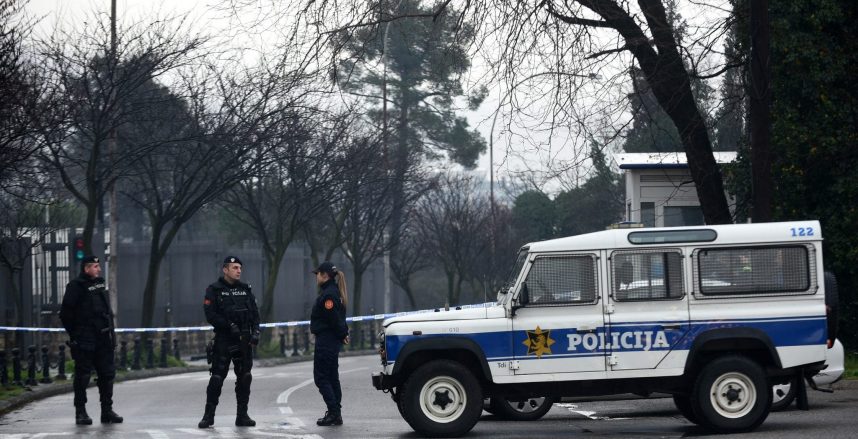
Experts say more proactive approaches may be needed to deal with ongoing wave of emailed bomb alerts that are highly disruptive – but difficult to trace.
This month, police in Bosnia arrested eight minors on suspicion of sending hoax bomb alerts to schools; one minor sent 49 alerts in just 11 days. Despite being treated as minors, depending on their age, they could face potential prison terms of six months to three years.
Their parents also face criminal charges, while the authorities have the right to seek compensation for financial costs caused by the fake alerts.
But despite the latest arrests, hoax bomb alerts sent to Sarajevo schools have continued. In recent weeks, police in the Bosnian capital have been occupied with checking dozens of schools that have received threatening emails. In every case, the threat proved false.
“The threatening messages that the minors sent were shocking and we will not publish them. They are suspected of the crimes of endangering security and false reporting,” Azra Bavcic, from the Prosecutor’s Office of Sarajevo Canton, told BIRN.
Some hoaxes have had a major impact. Earlier in October, the Armed Forces of Bosnia and Herzegovina tightened security measures at barracks and other sites after receiving an email about a potential terrorist attack. According to media reports, the sender’s address was traced back to Bulgaria. An investigation is undergoing.
Hoax bomb threats have also forced Bosnian and Serbian authorities to evacuate main airports at Sarajevo and Belgrade, causing disruption to passengers.
In one incident targeting Belgrade airport as well as several schools and the Education Ministry in the Serbian capital, police identified a 12-year-old as the culprit and instigated action against the child’s parents.
Security expert Sasa Zivanovic, former head of the department for combating high-tech crime at Serbia’s Interior Ministry, lives in Belgrade, where more than 2,000 reports of falsely planted bombs were sent in 2023. Over 1,200 were sent to schools’ email addresses.
He explained why investigations in these cases are different from traditional ones. “In these cases, international legal assistance is requested, to collect evidence. That data is not located in Bosnia and Herzegovina, or in another country of the region, but on different servers around the world,” Zivanovic points out.
International legal assistance is needed to obtain data on the email address from which the threat has arrived. On that basis, data can be requested from the domestic providers on the device from which it was sent.
Signed agreements with large technology companies would speed up investigations into hoax bomb threats, he argues.
“Some countries have bilateral contracts or agreements with large Internet service providers such as Meta, X, or Google, which the police approach directly with a prosecutor’s order. This avoids the sluggishness that often characterizes international legal assistance,” Zivanovic notes.
Most threats sent by minors

In Montenegro, as in Bosnia and Herzegovina, police have established that most false bombs reports are sent by minors.
From 2022 to October 8, 2024, 170 bomb hoax threats were registered in Montenegro, according to data BIRN obtained from the police. All of them arrived via email. Most were sent to primary and secondary schools, but some also to courts.
Since 2022, police in Montenegro have solved 63 cases of false bomb reports and filed charges against seven minors and one adult for false reporting and causing panic. In the same period, police filed two misdemeanor charges against one minor and one adult.
Police said the false threats are often sent using email platforms that make it difficult to identify the users.
“Technology has advanced, especially with the use of AI. This complicates the collection of evidence, so a longer period of time is needed to identify and prosecute the perpetrators of these crimes,” police told BIRN.
Solving such cases, police added, requires exhaustive analyses and checks, which often require the involvement of international partner services and foreign companies. That is why they need additional time to solve those cases.
As most false threats are sent by minors, Zivanovic believes the remedy must include a proactive approach and conversations with youngsters.
“Some of the children who do this are not even aware of how much damage they are causing,” he says: “Certainly, their awareness has not been developed to that extent, and that is why we should discuss the consequences of those actions with them.”
Youngsters wanting to brag

Police in Montenegro say their investigations have revealed various different motives for sending false bomb reports.
“From the cases solved so far, it can be concluded that these are mostly minors who do this to avoid tests at educational institutions, and often for fun,” they stated.
Copycatting accounts for some of the hoaxes, Zivanovic says. Some youngsters send threats because they want to stand out. “When a child connects to the internet, he has a dilemma about whether to be like everyone else or to be different, so he can boast,” he says.
“You also have the motive that, if someone needs to answer for some [court] case, he sends a threat to avoid it,” he adds.
Meanwhile, as cases continue to mount, police in Montenegro say that they plan to introduce an improved procedure for assessing reports. “On receipt of the report, the report itself – its contents and all its components – will be analysed, and then further action will be taken in terms of risk assessment,” the police explained.
Azem Kurtic contributed reporting to this feature from Sarajevo.